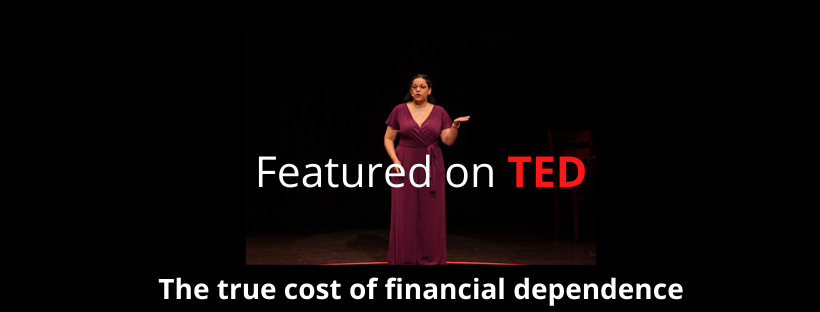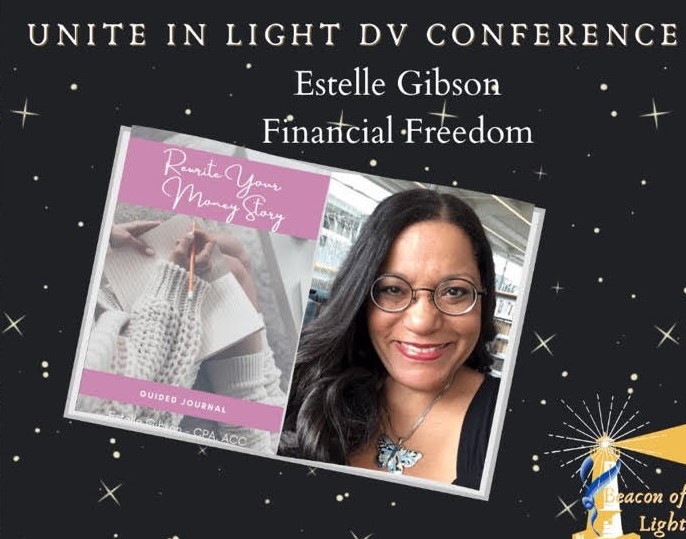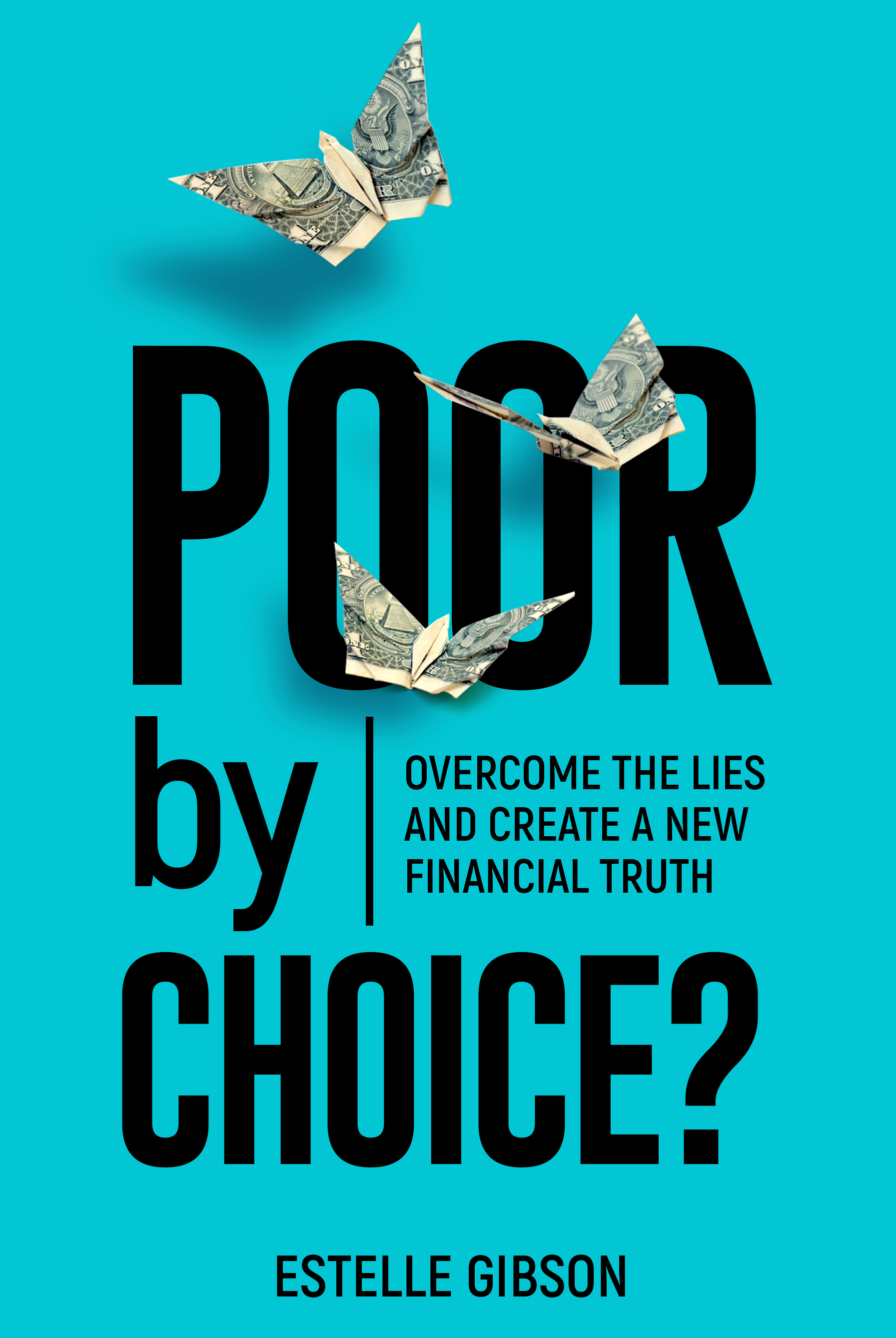WHAT IS FINANCIAL DEPENDENCY?
Financial dependency is when someone is dependent on a person, job or
situation for money
(No Opt-in required, Click to View and Download)
Watch my TED talk on Financial Dependency
Watch my presentation - Financial Abuse - The Invisible Weapon at the Unite in Light - Domestic Violence Conference
In my new book Poor By Choice? Overcome the Lies and Create a New Financial Truth, I share my personal journey and:
-The truth about Financial Dependency and its impact on You and Those Around You
-Simple, yet effective ways to manage your money, so you can take charge of your financial destiny
-The steps you can take to Achieve Your Goals and Dreams
Dependent by Choice
Some people become dependent by handing over
their power and participation in making decisions about their money
- In Relationships - where one partner doesn't want to be involved. This can be a personal or business relationship. They hand over their power and responsibility to a spouse, partner or professional - bookkeeper, accountant, lawyer. This also happens with celebrities and professional athletes.
- Adult children that live with their parents - they either move home or don't leave home because they don't want to go out on their own and have no money management skills or financial responsibilities
- Elderly parents that move in with their children or relatives. They may feel that they are getting older and want to be closer to loved ones. They sometimes let someone else manage their money and bank accounts, or they sign over power of attorney or put their money and asset's in someone else's name in case something happens to them.
Dependent by Circumstances
In these situations the person feels trapped because of their financial situation
- In a job or career that they are unhappy with or are being harassed but they can't leave because of their financial situation - whether it's due to credit car, college debt, medical bills, or expenses from taking care of their family or elderly parents
- Adult children that move home with their parents because they've had an illness or have gone through a tragedy - divorce, loss of home due to weather related events or loss of a job.
- Elderly parents - that may be incapacitated or can't take care of themselves either physically or emotionally and they have to move in with relatives.
Financial Abuse

Financial abuse occurs when someone is in a relationship and another person has power over them because they don’t have access to money, information, resources or a way out.
It can include: control of how the money is spent, restricting access to money, stopping the victim from earning money.
The Allstate Foundation’s domestic violence program (formerly the Purple Purse) calls financial abuse “the Invisible weapon”. Why? According to the Allstate Foundation:
“Physical abuse leaves bruises and scars. Financial abuse is an Invisible Weapon that traps victims in abusive relationships. The number one reason domestic violence survivors stay or return to an abusive relationship is that they don’t have the financial resources to break free. In 99% of domestic violence cases, financial abuse helps keep victims trapped in the abusive relationship”
Women in financial abuse situations are trapped – physically, emotionally, and financially
Physically - they can be isolated from family and friends
Financially - they are prevented from having access to financial resources – bank accounts, credit cards, transportation.
Emotionally - they lack the confidence and belief that they are capable to make it without their abuser.
WHAT YOU CAN DO ABOUT FINANCIAL DEPENDENCY
1. Become Aware
- If you are in crises - awareness about your situation, that you are not alone and there is help.
- If you are starting over - awareness about your current financial situation.
2. Be informed about Financial Literacy - by learning how to manage your money and to maintain healthy money habits. I always tell my clients and students – You don’t have to be an expert, but you do need to be informed
3. Giving and Getting Support
- Listen - to people that are in financial dependency or abuse situations and offer them support -without judgment or criticism
- Ask for support and get help - If you are a victim of Financial Abuse– there are resources out there to help you – ask for help.
RESOURCES:
IF YOU ARE IN CRISIS:
National Domestic Violence Hotline - 800-799-7233
National Network to End Domestic Violence https://nnedv.org/
National Coalition Against Domestic Violence - https://ncadv.org/
Emergency Shelters - https://www.womenshelters.org/
2-1-1 https://www.211.org/ - food, housing, and other essential services
Feeding America - https://www.feedingamerica.org/find-your-local-foodbank
Career One Stop - https://www.careeronestop.org/ - job, training and career resources
PERSONAL SUPPORT:
The Supporters Toolkit - if you know someone who is in an abusive situation and you don't know how to support them, the Supporters Toolkit can help. https://www.thesupportertoolkit.com/toolkit-welcome-page
EDUCATIONAL SUPPORT:
Allstate Foundation-Moving Ahead Financial Empowerment Curriculum https://allstatefoundation.org/what-we-do/end-domestic-violence/resources/
PROFESSIONAL SUPPORT:
American Psychologist Association (APA) locator: https://locator.apa.org/ to find a therapist
Findlaw.com https://www.findlaw.com/ to find an attorney
Womens Law - https://www.womenslaw.org legal services for people of all genders dealing with domestic violence


